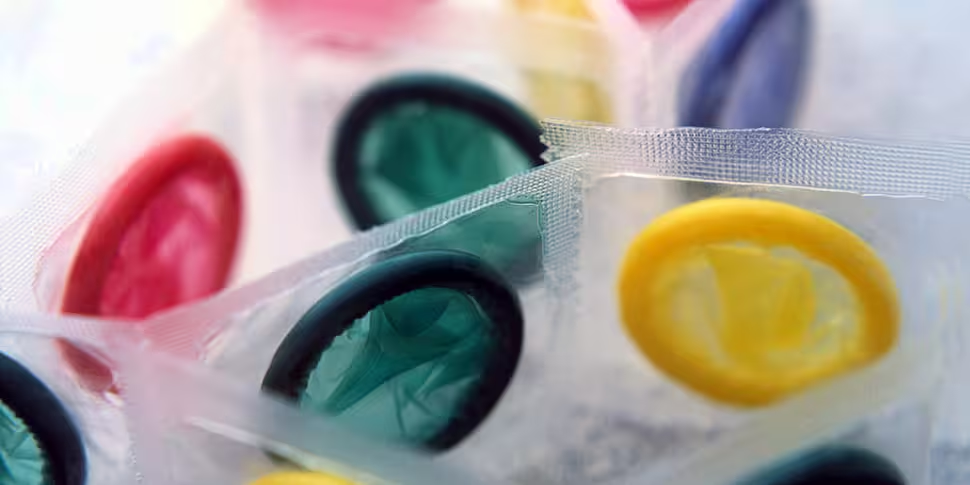New figures show that there was a 20% decrease in the number of sexually transmitted infections (STIs) reported in the third quarter of this year compared to the same period in 2019.
The information, which was obtained by Newstalk Breakfast from the HSE, shows the contrast in new cases between 2019 and 2020 over the three months of July, August and September.
The reduction of an average of 20% year on year comes at a time when people have been advised to adhere to social distancing.
Under HSE guidelines on COVID-19, people are advised to only be sexually active with a partner that they live with and to avoid kissing anyone outside of their household or anyone with symptoms.
The advice also states that people should wash their hands properly before and after sex and that if they decide to be sexually active with someone living outside of their household, this should be limited to as few partners as possible, preferably one regular partner.
The figures show that in the third quarter of 2020, there were 1,764 cases of chlamydia reported to the Health Protection Surveillance Centre.
This compares to 2,253 for the same period in 2019, a reduction of 489.
The number of gonorrhoea cases dropped by 129 to 527.
110 cases of HIV were reported in the third quarter of 2020 compared to 135 in 2019.
The number of herpes infections dropped from 419 to 305, whole syphilis infections also decreased from 198 to 144.
Dr Caroline West, 'sexpert' with Evoke.ie and host of the Glow West and Covid Care podcasts, said she was "happy to see a reduction" in STIs, but was "not surprised" to see the numbers as high as they are.
She told Newstalk Breakfast with Susan Keogh: "We're just not great at preventing STIs in this country.
"I suppose the lockdown was a bit of an experiment to see if we could do that but again that [the figures] were a result of people still having sex with new partners.
"We weren't supposed to be having sex with new people during lockdown but people still engaged in that so we were never going to completely erase new transmissions.
"It's nice to see the reduction but it could be a lot more."
She said the fact that there is a new HIV infection in Ireland every 18 hours shows that there is "something failing in our messaging".
She added: "I think part of that does still link to the roots of shame and stigma and people aren't getting enough STI tests because maybe they find it awkward.
"I think we have a long way to go to try and reduce these figures."
Sex education
Dr West said that people in her workshops in college reported that their sexual education in secondary school only focused on STIs and preventing pregnancies.
She added: "It's shocking to see that if that was the only sexual education they got, this is still the situation we're in so it's clearly not working."
She said education around STIs needs to be approached in a holistic way and they need to be treated as part of normal sexual wellbeing.
Dr West said: "Worldwise research shows that the more we empower people with decent STI education that's really comprehensive, STI rates do drop then."
She stated that while we are "failing" on this, a review on sexual education in schools is taking place so when that is rolled out, it will hopefully lead to a reduction in STI rates.
Dr West said some of the questions students ask her during her workshops at third level would "break your heart".
She explained: "Some of them would ask questions you would be shocked by and make you think, ' you should already know this by now'.
"But they don't because they haven't had anyone speak to them.
"One of the questions was 'is pubic hair normal', and it kind of breaks your heart a little bit because it's already wondering is that people being put under pressure to look a certain way.
"I also teach about porn literacy and trying to get people to understand the images we're seeing on screen and understanding that it's not meant to be real-life sex.
"We're really failing [young people] and we're not equipping them with the tools to navigate the world of adult relationships on a very healthy empowered basis."
Coronavirus
Dr West said that sexual, physical, and emotional intimacy are "just regular parts of human nature" but the problem is that we're in the midst of global pandemic where close contact can lead to the transmission of COVID-19.
She said: "Part of me hopes that we have started to have more education about the transmission of COVID and hopefully that applies to STIs as well so we understand that anyone can get COVID.
"It's just about being with another person in close proximity and that's what happens with STIs as well, they're just something you can get when you're in close proximity with another human.
"There's no shame, there's no stigma, it's just a part of normal life.
She added: "That's the thing with these stats as well, maybe sexual activity had stopped for a lot of people and then they said 'now is the time to get my test because I'm not being distracted, or I finally have time or I'd like to get this done before I see a new partner' because life is busy and sometimes an STI test isn't a priority.
"So hopefully that's the case, my cold dead heart hopes it is and that we're approaching a new era in Irish society where we are taking more responsibly for our sexual wellbeing."
You can find out information on STI testing centres and their operating hours in light of COVID-19 restrictions here.









